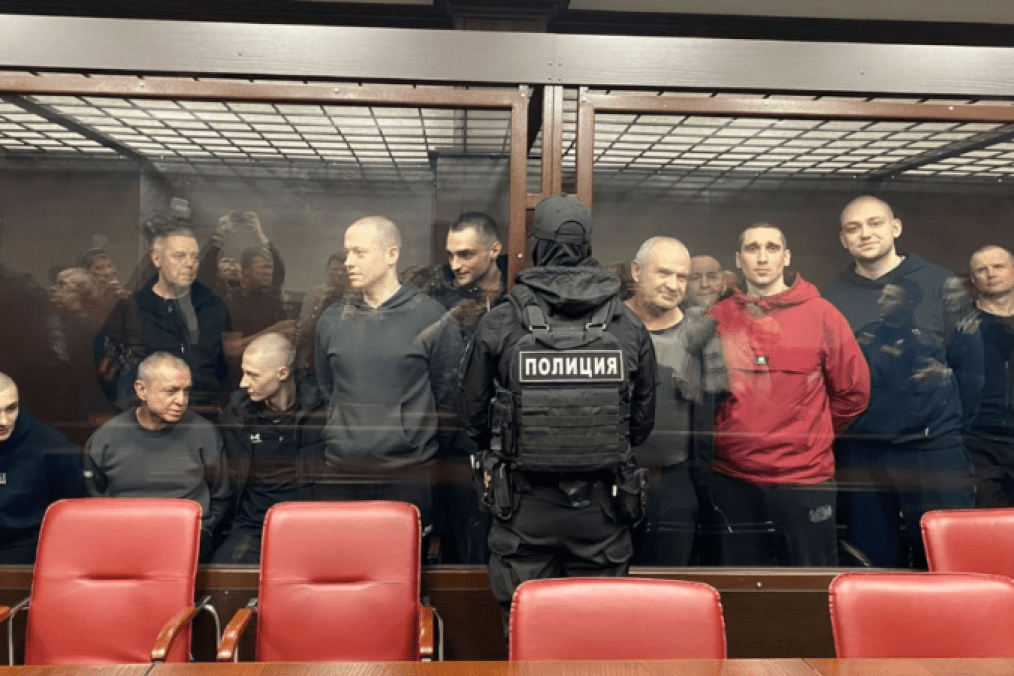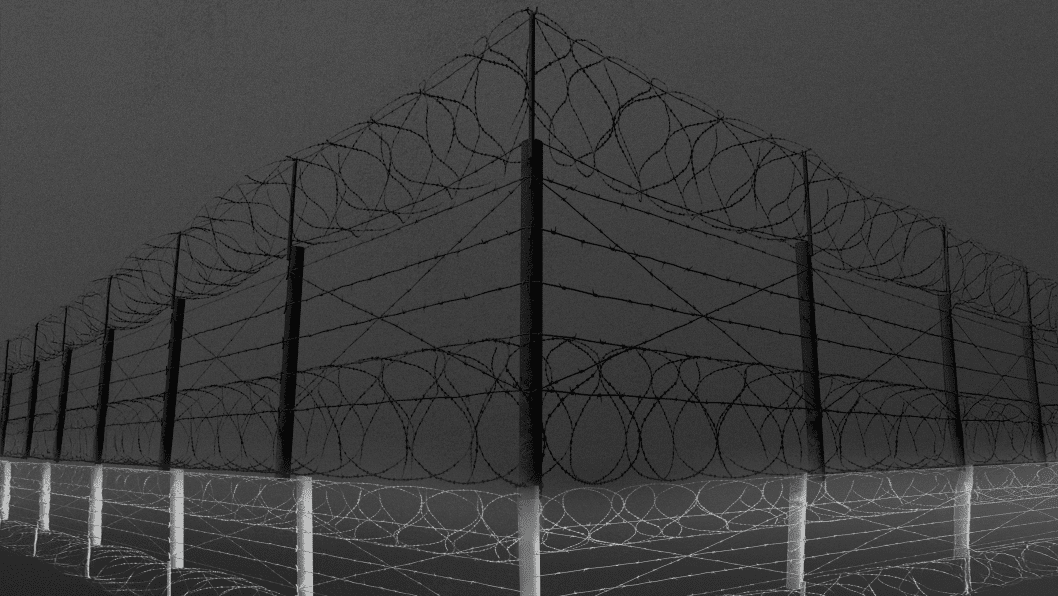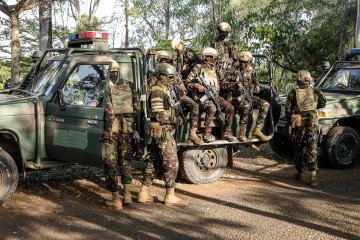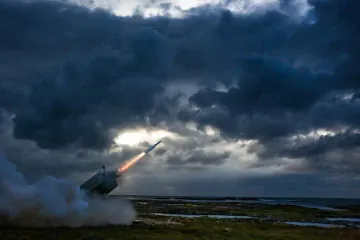- Category
- Latest news
Russia Sentences 23 Captured Ukrainian Azov Brigade Members to Lengthy Prison Terms

On March 26, the Southern District Military Court in Rostov-on-Don in Russian sentenced 23 Ukrainian prisoners of war and civilian support staff associated with the Azov Brigade to lengthy prison terms, with charges ranging from violent seizure of power to terrorism-related offenses.
The court’s decision included both in-person and in-absentia verdicts.
According to Russian outlet Mediazona, the court found the defendants guilty under articles of the Russian Criminal Code related to the organization of a terrorist group, violent seizure of power, and training for terrorist activity.
These charges were based on the individuals' past affiliation with the Azov Brigade, which was designated a terrorist organization by Russia’s Supreme Court in August 2022—months after many of the accused had already been captured.
Twelve defendants received real prison terms ranging from 13 to 23 years in high-security penal colonies:
22 years: Yaroslav Zhdamarov, Oleksandr Merochenets, Mykyta Timonin, Oleksandr Mukhin, Oleh Tyshkul, and Artur Hretskyi
20 years: Oleksandr Irkha and Artem Hrebeskhov
19 years: Anatolii Hrytsyk
17 years: Oleh Mizhhorodskyi
13 years: Oleh Zharkov
23 years: Oleksii Smykov
![Russia’s Sham Trials Send Ukrainian Prisoners of War to Brutal Penal Colonies]()
Eleven others were sentenced in absentia, including two individuals—Davyd Kasatkin and Dmytro Labinskyi—who had returned to Ukraine in a prisoner exchange. Both were sentenced to 23 years. Nine women previously exchanged were also sentenced in absentia to between 13 and 14 years in general-regime colonies. The group included former cooks and a supply officer.
The proceedings began in June 2023 and involved a total of 24 individuals. One of them, Oleksandr Ishchenko, a driver for the Azov Brigade, died in Russian custody in July 2024. The official documents cited “unknown causes of death,” and his case was closed without sentencing.
Several defendants, including civilians, reported mistreatment during pretrial detention, including torture, denial of medical care, and forced confessions under duress. Some also refused to recognize the legitimacy of the court. In his final statement, Mykyta Timonin described overcrowded and unsanitary conditions in the detention facility, along with physical abuse.
According to human rights experts from the Kharkiv Human Rights Protection Group (KHPG), the charges rely on retrospective application of Russian law. The Azov Brigade was labeled a terrorist organization only after many of the defendants had been captured, which contradicts both Russian legal standards and international law.
Article 65 of the Geneva Convention stipulates that legal provisions introduced by an occupying power must not have retroactive effect and must be made publicly available in the language of the local population.
KHPG further noted that some of those convicted had no combat role and that prosecuting military personnel simply for participating in defense operations contradicts the principles of international humanitarian law. Under the Geneva Conventions, only individuals accused of specific war crimes may be prosecuted—not for actions taken in the course of lawful defense.
Earlier, in December 2024, a court in Russian-occupied Donetsk sentenced nine Ukrainian servicemen from the 36th Separate Marine Brigade to prison terms ranging from 24 years to life. The soldiers, all captured after defending Mariupol and retreating to the Azovstal plant, were accused of shelling a nearby village. The trial was widely seen as politically motivated.





-c439b7bd9030ecf9d5a4287dc361ba31.jpg)



-21f402f6f32da8b0165ae48804a71feb.jpeg)